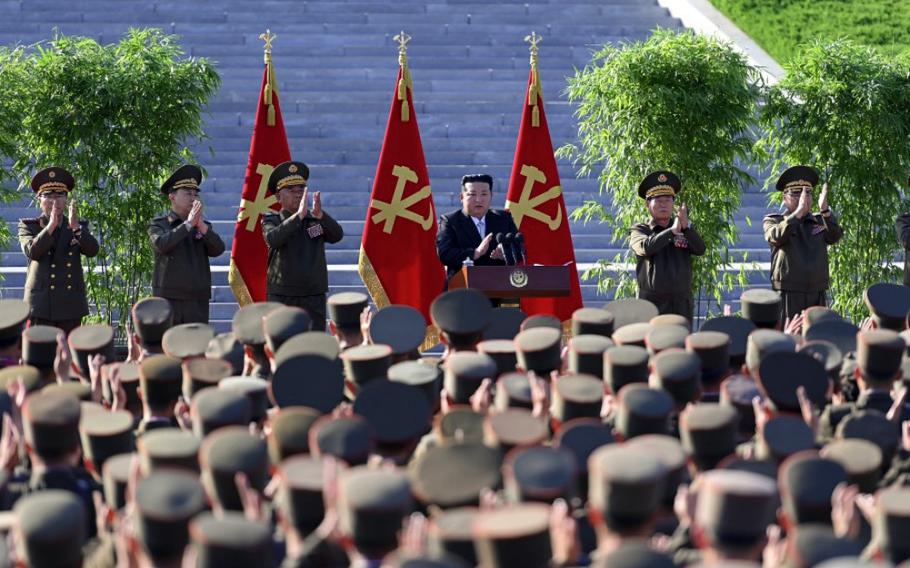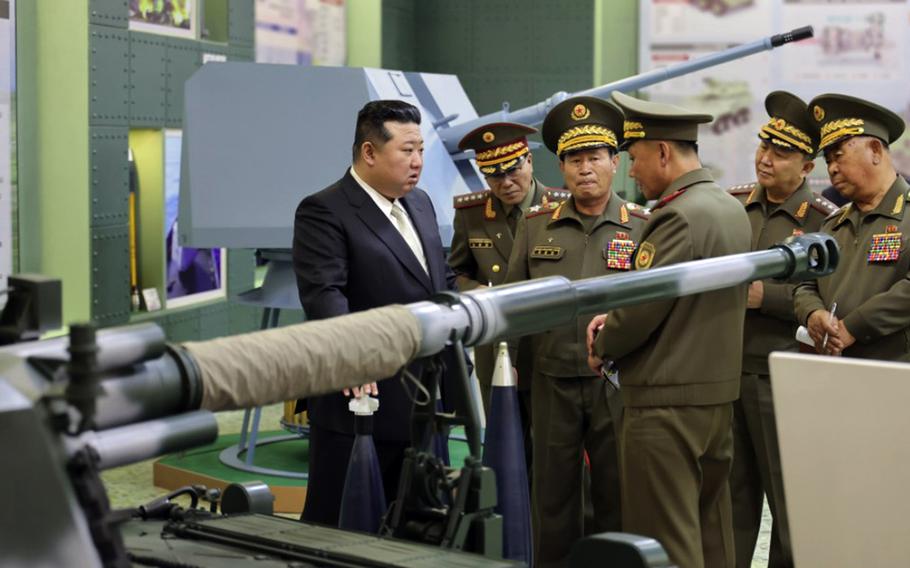
North Korean leader Kim Jong Un visits the Academy of Defense Sciences in Pyongyang, May 28, 2024, in this image from the state-run Korean Central News Agency. (KCNA)
CAMP HUMPHREYS, South Korea — North Korea’s leader acknowledged Monday’s failed attempt to place a spy satellite into orbit but vowed to work harder to boost his country’s space capabilities, according to the state-run Korean Central News Agency.
Kim Jong Un made the rare admission during a speech to scientists at the Academy of Defense Sciences in Pyongyang on Tuesday, the day after a rocket carrying the satellite exploded roughly two minutes after launch.
“This launch failed … but there is something that we need to clarify, whether it was successful or not,” he said, according to Wednesday’s KCNA report. “The possession of military reconnaissance satellites is necessary for our country to strengthen self-defense.
“Through failure, we can learn more and develop in a bigger way,” he added.
Kim has vowed to place three military satellites into orbit this calendar year, KCNA reported Dec. 31.

North Korean leader Kim Jong Un visits the Academy of Defense Sciences in Pyongyang, May 28, 2024, in this image from the state-run Korean Central News Agency. (KCNA)
Monday marked the communist regime’s fourth attempt to launch a satellite in the past 12 months. Of those launches on May 31, Aug. 24 and Nov. 21, only the November try was successful.
The United States, South Korea and Japan have condemned the launches, saying they violate U.N. Security Council resolutions prohibiting the country from testing ballistic missiles.
Kim told the scientists the country is trying to send military satellites into space due to threats from the U.S. and South Korea, which are “demonstrating their military might near the border” at record pace.
About 60 military aircraft from the U.S. and South Korea wrapped up the biannual, eight-day Soaring Eagle exercises on Friday. Both countries described the training as defensive in nature.
The countries also conducted their largest annual aerial exercise last month, which saw around 25 types of aircraft fly in and around South Korea for 15 days.
North Korea’s satellite launches and Kim’s statements indicate the regime has become “more focused on the militarization of space,” Yang Uk, a research fellow at the Asan Institute for Policy Studies in Seoul, told Stars and Stripes by phone Wednesday.
It is difficult to predict when Pyongyang will launch another satellite, he said, noting that last year’s attempts came in three-month intervals.
Kim might not make his goal of successfully orbiting three satellites in 2024, considering it is nearly halfway through the year, Yang said.
North Korea has also continued to test short- and intermediate-range ballistic missiles, including a solid-fueled weapon mounted with a hypersonic glide vehicle on April 2.
The North last fired several short-range ballistic missiles toward the Sea of Japan, or East Sea, on May 17.